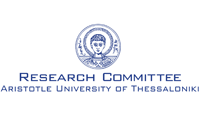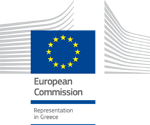Vilelmini Sosoni
Ionian University
This email address is being protected from spambots. You need JavaScript enabled to view it.
The beginning of the end or a new beginning? Challenges and opportunities for the Greek translator at the dawn of the 21st century
Abstract
The dawn of the 21st century has been marked by the blossoming of Translation Studies (TS) and the growth of translation needs. In fact,the translation profession grew to such an extent that it is regularly being labeled as one of the most promising professions with the most prospects (Kurtz, 2013). Yet, during the past two decades this growth went hand-in-hand with an unprecedented globalisation, mind-blowing technological innovations as well as an economic turmoil that shifted the governments’ priorities and the dynamics of business and was followed by austerity measures in many countries around the world (Sosoni & Rogers, 2013). These developments did not leave the translation landscape unaffected: Computer-assisted Translation (CAT), Machine Translation (MT) and post-editing (cf. Olohan 2011, Pym 2011, O’Brien 2012), inverse or Non-native Speaker (NNS) translation (Whyatt & Kościuczuk, 2013) as well as amateur translation and crowdsourcing ‘solutions’ are becoming increasing popular (cf. Díaz-Cintas & Muñoz Sánchez 2006, Kelly 2009, O’Hagan 2009, Perrino 2009, Cronin 2010, García 2010, Gambier 2012, McDonough Dolmaya 2014), while prices fall and working conditions worsen. These posits will be explored in relation to the Greek market on the basis of questionnaires addressed to Greek professional translators working on a freelance basis or as in-house members of staff, and to translation companies based in Greece. An attempt will be made to establish whether and in what ways these new developments have affected their working patterns and working conditions. An attempt will also be made to identify the needs and priorities of clients as well as the new realities of translation practice. It is hoped that the conclusions that will arise will help map the changing landscape of the translation profession in Greece and highlight the skills that translators should possess in order to be competitive in the local and international translation markets.
Keywords: globalisation, MachineTranslation (MT), crowdsourcing, amateur translation, the translation profession
Bibliography
- Cronin, Michael (2010). “The IT Crowd”, Tradumática, 8. Retrieved from http://www.fti.uab.es/tradumatica/revista/num8/articles/04/04art.htm .
- Díaz-Cintas, Jorge & Muñoz Sánchez, Pablo (2006). “Fansubs: Audiovisual Translation in an Amateur Environment”, The Journal of Specialised Translation, 6, 37-52. Retrieved from http://www.jostrans.org/issue06/art_diaz_munoz.pdf .
- Gambier, Yves (2012). “Denial of Translation and Desire to Translate”, Vertimo Studijos, 5, 9-29.
- García, Ignacio (2010). “The Proper Place of Professionals (and Non-Professionals and Machines) in Web Translation”, Tradumática, 8. Retrieved from http://www.fti.uab.es/tradumatica/revista/num8/articles/02/02art.htm .
- Kelly, Nataly (2009). “Freelance translators clash with Linkedin over crowdsourced translations”. Retrieved from http://www.globalwatchtower.com/2009/06/19/linkedin-ct3/ .
- Kurtz, Annalyn (2013). “The Hottest Job Skill is...”, CNN. Retrieved from http://money.cnn.com/2013/10/30/news/economy/job-skills-foreign-language/
- McDonough Dolmaya, Julie (2014). “Analyzing the Crowdsourcing Model and Its Impact on Public Perceptions of Translation”, The Translator: Non-Professionals Translating and Interpreting. Participatory and Engaged Perspectives, 18(2), 167–191.
- O'Brien, Sharon (2012). “Translation as human-computer interaction”, Translation Spaces, 1(1), 101–122.
- O’Hagan, Minako (2009). “Evolution of User-generated Translation: Fansubs, Translation Hacking and Crowdsourcing”, Journal of Internationalisation and Localisation, 1, 94–121.
- Olohan, Maeve (2011). “Translators and translation technology: The dance of agency”, Translation Studies, 4(3), 342–357.
- Pym, Anthony (2011). “What Technology does to Translating”, The International Journal for Translation and Interpreting Research, 3(1), 1–9.
- Sosoni, Vilelmini & Rogers, Margaret (2013) “Translation in an Age of Austerity: From Riches to Pauper, or Not?”, mTm, 5, 5–7.
- Whyatt, Bogusława & Kościuczuk, Tomasz (2013). “Translation into a Non-native Language: The Double Life of the Native Speakership Axiom”, mTm, 5, 60–79.
Short CV
Dr Vilelmini Sosoni is Lecturer at the Department of Foreign Languages, Translation and Interpreting at the Ionian University. In the past, she taught Specialised Translation in the UK at the University of Surrey, the University of Westminster and Roehampton University, and in Greece at the National and Kapodistrian University of Athens and the Institut Français d’ Athènes. She also has extensive industrial experience having worked as translator, editor and subtitler. Her research interests lie in the areas of the Translation of Institutional Texts, Corpus Linguistics, Machine Translation (MT) and AVT. She is a founding member of the Research Lab “Language and Politics” of the Ionian University and a member of the “Centre for Research in Translation and Transcultural Studies” of Roehampton University. She has participated in EU-funded research projects and has published articles in international journals and edited volumes.







